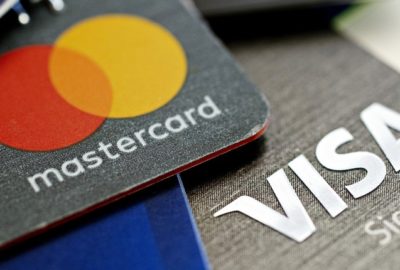ACI Worldwide report: „mobile becoming the new plastic sooner than we thought”

On the eve of the third anniversary of the launch of Apple Pay, mobile wallet adoption is on the rise globally and consumers in the U.S. and Europe are catching up with those in fast-growing economies in Asia and Latin America where mobile wallets have already become the dominant payment platform, according to new benchmark data from the Global Consumer Survey: Consumer Trust and Security Perceptions published by ACI Worldwide and Aite.
The research shows that 17 percent of U.S. consumers now regularly use their smartphone to pay, up from 6 percent in 2014 when the survey was last conducted. In Europe, Spanish consumers are the most active users of mobile wallets, with 25 percent using them regularly, followed by Italy (24%), Sweden (23%) and the U.K. (14%), according to the press release.
“Mobile wallets really started to grow in popularity after the launch of Apple Pay almost three years ago,” said Mark Ranta, head of digital banking solutions, ACI Worldwide. “What we are seeing is a tipping point regarding adoption, which can be attributed to consumers worldwide now almost exclusively using payment-enabled devices, as older models have cycled out, with a few exceptions.”
Key findings:
Mobile wallet adoption: India tops the list of countries surveyed, with 56 percent of consumers saying they pay with a smartphone regularly, followed by Thailand (51%) and Indonesia (47%). According to the research, these markets are leap-frogging traditional card infrastructures and usage patterns and are very mobile-oriented, as most consumer’s internet connections are through a mobile device rather than a desktop or laptop.
Mobile wallet security: Consumer confidence regarding mobile wallet security remains high. In the U.K., 37 percent of respondents said they trust their bank to protect their personal information when paying via smartphone; in France, 40 percent; and in Holland, 28 percent.
Mobile wallet fraud: The report warns that as more consumers adopt mobile wallets, they may also become a bigger target for criminals—exposed to fraud when using their mobile wallets. Compared to previous years, confidence rates regarding mobile wallet security have dropped in some countries, a sentiment that may be influenced by increasing reports of new mobile wallet fraud and scams.
“Another important factor in the U.S. is the ubiquity of mobile wallet acceptance,” continued Ranta. “With the EMV rollout behind us, most stores are NFC-enabled and the acceptance of mobile wallets is now almost guaranteed by most larger retailers and even many smaller ones.
“And there is of course China, one of the world’s fastest growing markets and trendsetters when it comes to mobile payments. The Chinese market is dominated by two players – Alipay and WeChat Pay. Both schemes use optical scanning ‘QR-code’ techniques at the point of sale instead of the plastic card industry standards like NFC (Near Field Communication). QR-code techniques have grown dramatically in popularity over the last 5 years, on the back of smart phone adoption and the ubiquitous use of social media and digital platforms. These new Chinese payments services are expected to drive new payment behaviors across Asia and globally.
“The rollout of immediate payments schemes worldwide, combined with new regulation in Europe coming into effect in early 2018, will only increase the importance of mobile payments. This will open the door for a range of new players in the payments market and we may see mobile becoming the new plastic sooner than we thought.”
Methodology and Demographics:
Data from Global Consumer Survey: Consumer Trust and Security Perceptions. ACI Worldwide conducted online quantitative market research in April 2016 and surveyed 6,035 consumers. The study was conducted in a total of 20 countries in the following regions:
The Americas: Brazil, Canada, Mexico, and the United States
EMEA: France, Germany, Italy, the Netherlands, South Africa, Sweden, the United Arab Emirates, and the United Kingdom
APAC region: Australia, India, Indonesia, New Zealand, and Singapore. China, Russia, and Poland were removed compared to 2014, and Spain, Thailand, and Hungary were added for 2016.
In total, 6,035 consumers participated in the research—approximately 300 consumers in each of the twenty counties, divided equally between men and women. Of the total, 5,861 own one or more type of payment card—credit card, debit card, or prepaid card. This is the fourth time that ACI has fielded this type of survey, and some comparative results are included from 2012 and 2014. In each country, the data has a margin of error of approximately five points. Statistical tests of significance, where shown, were conducted at the 95 percent level of confidence.
About ACI Worldwide
ACI Worldwide, the Universal Payments (UP) company, powers electronic payments for more than 5,100 organizations around the world. More than 1,000 of the largest financial institutions and intermediaries, as well as thousands of global merchants, rely on ACI to execute $14 trillion each day in payments and securities.
Dariusz Mazurkiewicz – CEO at BLIK Polish Payment Standard
Banking 4.0 – „how was the experience for you”
„To be honest I think that Sinaia, your conference, is much better then Davos.”
Many more interesting quotes in the video below:









